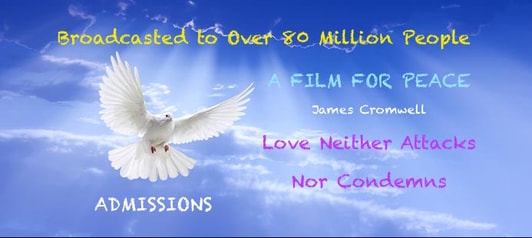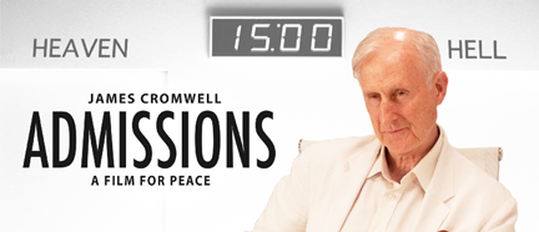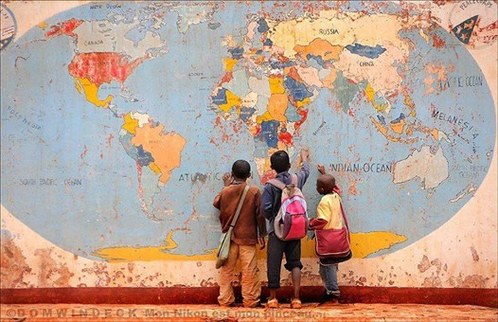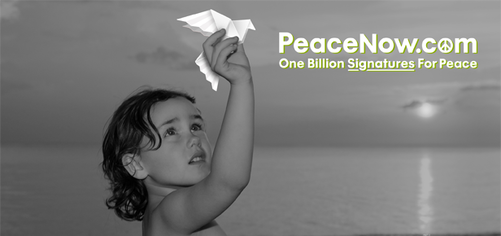http://www.admissionsfilm.com
“Film for Peace,” has won 26 international awards
and has been broadcast to over 80 million people in five different languages.
A powerful film and its healing message as a Gift of Peace to everyone for free.
“Film for Peace,” has won 26 international awards
and has been broadcast to over 80 million people in five different languages.
A powerful film and its healing message as a Gift of Peace to everyone for free.
The Message of the Film
in Few Words ...
"The ones that find it hardest to love, need love the most.
Hell is the worlds nightmare, not reality.
An everlasting peace doesn't come from falling asleep, it comes from waking up.
You were created from love for the sole purpose of love.
Murder is a contradiction whether done by governments or individuals,
because it goes against what you truly are.
Love neither attacks nor condemns.
When you can forgive those who attack and condemn you,
than you know it is really love ... "
From the "Admissions" Film
in Few Words ...
"The ones that find it hardest to love, need love the most.
Hell is the worlds nightmare, not reality.
An everlasting peace doesn't come from falling asleep, it comes from waking up.
You were created from love for the sole purpose of love.
Murder is a contradiction whether done by governments or individuals,
because it goes against what you truly are.
Love neither attacks nor condemns.
When you can forgive those who attack and condemn you,
than you know it is really love ... "
From the "Admissions" Film
| Admissions Discussion Guide | |
| File Size: | 397 kb |
| File Type: | |
The "Admissions" Film starts at 19 minutes.
What is Peace?
To have peace is a state of beauty where there is no longer any mental anguish.
It is a grand, a mind boggling concept.
Yet, truly, small enough to package in a nutshell, because peace is, as we are,
a truth that we can let ourselves experience.
Peace is a gift, a gift readily available for everyone, right here and right now.
Peace is in your heart – your humanness – your love and mercy for yourself and for others.
Desire peace, love, kindness, freedom and human dignity.
When peace will be understood, then there will be no more wars, no more bloodshed,
no more hatred, no more crying of mothers and children because of the invaders and enemy’s money hungry, high - tech killing machines overwhelming destructions.
There will be no more “Support Our Troops” stickers on cars.
There will be peace – where there is kindness, love, cheerfulness, generosity,
and incredible harmony among human beings.
Because we know things that the politicians do not know.
Because we have a heart, which has astonishing principles.
Not a heart which is striving for other countries’ wealth
or striving for rulership dictated by ancient merciless principles.
Our heart has deeply rooted in
~ love your neighbors and love your enemy ~
everlasting principles which produced incredible people all over the world.
Apply peace to all aspects of your valuable daily life.
To have peace is a state of beauty where there is no longer any mental anguish.
It is a grand, a mind boggling concept.
Yet, truly, small enough to package in a nutshell, because peace is, as we are,
a truth that we can let ourselves experience.
Peace is a gift, a gift readily available for everyone, right here and right now.
Peace is in your heart – your humanness – your love and mercy for yourself and for others.
Desire peace, love, kindness, freedom and human dignity.
When peace will be understood, then there will be no more wars, no more bloodshed,
no more hatred, no more crying of mothers and children because of the invaders and enemy’s money hungry, high - tech killing machines overwhelming destructions.
There will be no more “Support Our Troops” stickers on cars.
There will be peace – where there is kindness, love, cheerfulness, generosity,
and incredible harmony among human beings.
Because we know things that the politicians do not know.
Because we have a heart, which has astonishing principles.
Not a heart which is striving for other countries’ wealth
or striving for rulership dictated by ancient merciless principles.
Our heart has deeply rooted in
~ love your neighbors and love your enemy ~
everlasting principles which produced incredible people all over the world.
Apply peace to all aspects of your valuable daily life.
Discussion Guide
http://www.peacenow.com/resolution/
The Global Resolution for the Establishment of Infrastructures to Support the Culture of Peace
Contact: Admissions Creator & PeaceNow.com
Co-Founder John Viscount [email protected]
http://www.peacenow.com/resolution/
The Global Resolution for the Establishment of Infrastructures to Support the Culture of Peace
Contact: Admissions Creator & PeaceNow.com
Co-Founder John Viscount [email protected]
Overview:
In the twentieth century, an estimated 160 million people died as a result of war.
Yet, despite all the suffering the human race has endured, global peace remains elusive.
Currently, an estimated 74 out of the world’s 196 countries are involved in armed conflict. This means over one third of the earth is engaged in some from of war.
An effective peace process puts us back in touch with our higher nature and reminds us of what we truly are. It unites by building bridges that transform separate interests (me) into shared interests (we). For only in oneness can peace endure.
Admissions is a dramatic short film starring Academy Award® nominee, James Cromwell, that tells a transformational tale about what it takes to find lasting peace, even in the most conflict-ridden regions of our world. This Admissions Discussion Guide is a companion piece to the film and provides questions that explore the film’s primary themes including:
1. The importance of forgiveness in resolving conflict and the wisdom of transcending the cycle of attack and counter-attack in our world.
2. Raising awareness about how we create our own heavens and hells on earth and inside our own minds.
3. Discovering new ways to look at events and relationships in our lives that will help us choose love rather than fear.
This guide includes:
1. Pre-screening and post-screening questions designed to measure the film’s impact and deepen the audience’s understanding of its core principles.
2. Dramatic excerpts from Admissions that present transformational teachings followed by discussion questions that delve into their deeper meaning.
3. An introduction to PeaceNow.com and The Global Alliance for Ministries & Infrastructures for Peace for those who want to support the movement to establish peace departments in governments worldwide
General Pre-Screening Questions:
1. When you think of the Middle East, what comes to mind?
2. What is the cause of all the conflict in the Middle East?
3. What will it take to achieve peace in the Middle East and in other parts of the world?
4. Is it better for everybody to be forgiven in life or do some people deserve to be judged and condemned?
Post-Screening Questions:
1. Did the film affect your thinking in any way?
2. What in the film touched you?
3. What new possibility, insight or initiative was awakened in you?
4. Is peace merely a utopian ideal or is it possible to achieve on earth?
5. If you could fully feel how your decisions and actions make other people feel, would you make any changes in your life?
6. What is the difference between shared interests and separate interests?
7. What does it take to go from separate interests to shared interests?
8. What were the motivations and viewpoints of the Palestinian man and what made him sad?
9. What were the motivations and viewpoints of the Israeli wife and her Israeli husband and what made them sad?
10. At what moment in the film do the Israelis and the Palestinian stop clinging to their separate interests and start finding things in common?
11. Did you think anyone in the film was going to hell?
12. Do you approve of everyone getting into heaven?
13. According to the film, what is the one thing that guarantees your entrance into heaven?
14. Is it possible to experience heaven with hatred in your heart?
15. What is the meaning of the statement: “Holding a grievance is like injecting yourself with poison and thinking it will kill your enemy.”
16. Can you name other conflicts that could have been featured in this film that can also be healed by the teachings of Admissions?
17. What are some benefits of forgiveness?
18. What is the best way to protect our selves from enemies?
19. Did you think the Clerk was wise and if so, how?
20. What is the deeper meaning of a clerk, with such a seemingly important job, spending his time doodling?
21. After viewing the film, do you feel it is better for everybody to be forgiven in life and or do some people deserve to be judged and condemned?
22. What do you think happened between the last two characters, the older white man, and the younger black teenager?
23. In the last scene with the older man and the teenager, the audience is actually looking at its own projection. What is meant by this statement?
24. If you had one piece of advice for those two people, what would it be?
25. If you had one piece of advice for the next generation, what would it be?
Admissions Discussion Excerpts
“The past and the future don’t really exist.
The only thing you should be concerned with is right now.”
Name some ways we live in the past.
Name some ways we live in the future.
What are some of the benefits of living in the present moment?
“The ones who find it hardest to love need love the most.”
Name a person in your life or someone you know who finds it hard to love that needs love the most.
Name a famous person who finds it hard to love that needs love the most. Name a time when you found it hard to love and needed love the most.
“You were created from love for the sole purpose of love.”
How can you tell love is our natural state? How can you tell fear is an unnatural state?
“Murder is a contradiction because it goes against what you truly are.”
If love is our true nature, what does it indicate about those who murder other people?
If love is our true nature, name other actions beside murder that go against what we truly are.
“Love neither attacks nor condemns.”
Where do attack and condemnation come from? Why is it so important that we forgive ourselves?
What are some ways to stop the cycle of attack and counter attack that occurs during wars?
“Everyone is allowed to believe in whatever God they choose to.”
What are some of the problems caused by closed-mindedness and intolerance?
What are some of the benefits of being open-minded about other cultures and religions?
“You can’t want hell for others without being in hell yourself.”
Name some ways we create our own hells. Name some ways we create our own heavens.
“Without forgiveness, there can be no heaven.”
In the film, how does the door to heaven get opened?
In life, is it better to be right or happy?
Name a time when you forgave someone and experienced peace.
“When you love those that attack and condemn you, that’s when you know it’s really love.”
What is the difference between conditional love and unconditional love? Is there more conditional or unconditional love in the world?
How can we increase unconditional love in the world?
Have you ever experienced or witnessed unconditional love?
“Hell is just a prop.”
What do you think hell is?
In the film, heaven is symbolic of joining and hell is symbolic of separation. Can you explain what this statement means?
If hell is a nightmare that we have created for ourselves, what is the best way to wake up from it?
“And so it is with us, the fighting and the hatred can stop.”
Name some things opposing sides can do to see each other’s point of view. How does everyone in the world have the power to create peace?
For additional stories and deeper exploration into forgiveness, mindfulness and other life-changing practices:
Mind What Matters.
A Pep Talk for Humanity By Admissions Creator
John Viscount
Featuring 22 uplifting chapters addressing the biggest challenges human beings face finding lasting peace and happiness.
https://johnviscount.com/mind-what-matters
Admissions Discussion Guide All Rights Reserved
Admissions & The Culture of Peace
The filmmakers behind Admissions are working to support visionary organizations that are on a mission to achieve sustainable peace in our world.
PeaceNow.com is gathering one billion signatures in support of a United Nations Global Resolution that establishes Peace Departments in governments worldwide. To date, it has received signatures representing 191 countries.
The drafting of the The Global Resolution for the Establishment of Infrastructures to Support the Culture of Peace was a collaborative effort between United Nations Culture of Peace working groups, the Global Alliance for Ministries & Infrastructures for Peace, and PeaceNow.com.
Inspired by the Ministries of Peace in Costa Rica Nepal, the Solomon Islands, East Timor and South Sudan, our goal is to strengthen the way governments resolve conflict and build a global movement that embraces the Culture of Peace.
To sign the Global Resolution and share our “Gift of Peace” free screening of Admissions with everyone you know, please visit:
www.PeaceNow.com
One Billion Signatures For Peace
Together we will build up the muscles of peace in our world, so in the tug of war for our future,
the muscles of peace win.
The Global Resolution for the Establishment of Infrastructures to Support the Culture of Peace
We, ONE BILLION plus signatories from the 196 Nations of Earth, respectfully in one voice, call upon the United Nations (UN) and all countries, both nationally and in collaboration with the community of nations, to create infrastructures in their governments and in civil society to develop and implement policies, programs and practices that:
• To provide for the training of all military and civilian personnel who administer post-war reconstruction and demobilization in war-torn societies; and
• To fund the development of peace education curriculum materials for use at all educational levels and to support university-level peace studies.
Further, we call upon the UN General Assembly to reaffirm its pledge, as faithful representatives of the governments of the world, to join “We the Peoples” in creating a peaceful world in the spirit of the UN Charter, thus advancing the Culture of Peace within each nation, each culture, each religion, and each human being for the betterment of all humankind and future generations.
In making this call, we gratefully acknowledge the long history of work already accomplished within the UN toward this end, including:
In the twentieth century, an estimated 160 million people died as a result of war.
Yet, despite all the suffering the human race has endured, global peace remains elusive.
Currently, an estimated 74 out of the world’s 196 countries are involved in armed conflict. This means over one third of the earth is engaged in some from of war.
An effective peace process puts us back in touch with our higher nature and reminds us of what we truly are. It unites by building bridges that transform separate interests (me) into shared interests (we). For only in oneness can peace endure.
Admissions is a dramatic short film starring Academy Award® nominee, James Cromwell, that tells a transformational tale about what it takes to find lasting peace, even in the most conflict-ridden regions of our world. This Admissions Discussion Guide is a companion piece to the film and provides questions that explore the film’s primary themes including:
1. The importance of forgiveness in resolving conflict and the wisdom of transcending the cycle of attack and counter-attack in our world.
2. Raising awareness about how we create our own heavens and hells on earth and inside our own minds.
3. Discovering new ways to look at events and relationships in our lives that will help us choose love rather than fear.
This guide includes:
1. Pre-screening and post-screening questions designed to measure the film’s impact and deepen the audience’s understanding of its core principles.
2. Dramatic excerpts from Admissions that present transformational teachings followed by discussion questions that delve into their deeper meaning.
3. An introduction to PeaceNow.com and The Global Alliance for Ministries & Infrastructures for Peace for those who want to support the movement to establish peace departments in governments worldwide
General Pre-Screening Questions:
1. When you think of the Middle East, what comes to mind?
2. What is the cause of all the conflict in the Middle East?
3. What will it take to achieve peace in the Middle East and in other parts of the world?
4. Is it better for everybody to be forgiven in life or do some people deserve to be judged and condemned?
Post-Screening Questions:
1. Did the film affect your thinking in any way?
2. What in the film touched you?
3. What new possibility, insight or initiative was awakened in you?
4. Is peace merely a utopian ideal or is it possible to achieve on earth?
5. If you could fully feel how your decisions and actions make other people feel, would you make any changes in your life?
6. What is the difference between shared interests and separate interests?
7. What does it take to go from separate interests to shared interests?
8. What were the motivations and viewpoints of the Palestinian man and what made him sad?
9. What were the motivations and viewpoints of the Israeli wife and her Israeli husband and what made them sad?
10. At what moment in the film do the Israelis and the Palestinian stop clinging to their separate interests and start finding things in common?
11. Did you think anyone in the film was going to hell?
12. Do you approve of everyone getting into heaven?
13. According to the film, what is the one thing that guarantees your entrance into heaven?
14. Is it possible to experience heaven with hatred in your heart?
15. What is the meaning of the statement: “Holding a grievance is like injecting yourself with poison and thinking it will kill your enemy.”
16. Can you name other conflicts that could have been featured in this film that can also be healed by the teachings of Admissions?
17. What are some benefits of forgiveness?
18. What is the best way to protect our selves from enemies?
19. Did you think the Clerk was wise and if so, how?
20. What is the deeper meaning of a clerk, with such a seemingly important job, spending his time doodling?
21. After viewing the film, do you feel it is better for everybody to be forgiven in life and or do some people deserve to be judged and condemned?
22. What do you think happened between the last two characters, the older white man, and the younger black teenager?
23. In the last scene with the older man and the teenager, the audience is actually looking at its own projection. What is meant by this statement?
24. If you had one piece of advice for those two people, what would it be?
25. If you had one piece of advice for the next generation, what would it be?
Admissions Discussion Excerpts
“The past and the future don’t really exist.
The only thing you should be concerned with is right now.”
Name some ways we live in the past.
Name some ways we live in the future.
What are some of the benefits of living in the present moment?
“The ones who find it hardest to love need love the most.”
Name a person in your life or someone you know who finds it hard to love that needs love the most.
Name a famous person who finds it hard to love that needs love the most. Name a time when you found it hard to love and needed love the most.
“You were created from love for the sole purpose of love.”
How can you tell love is our natural state? How can you tell fear is an unnatural state?
“Murder is a contradiction because it goes against what you truly are.”
If love is our true nature, what does it indicate about those who murder other people?
If love is our true nature, name other actions beside murder that go against what we truly are.
“Love neither attacks nor condemns.”
Where do attack and condemnation come from? Why is it so important that we forgive ourselves?
What are some ways to stop the cycle of attack and counter attack that occurs during wars?
“Everyone is allowed to believe in whatever God they choose to.”
What are some of the problems caused by closed-mindedness and intolerance?
What are some of the benefits of being open-minded about other cultures and religions?
“You can’t want hell for others without being in hell yourself.”
Name some ways we create our own hells. Name some ways we create our own heavens.
“Without forgiveness, there can be no heaven.”
In the film, how does the door to heaven get opened?
In life, is it better to be right or happy?
Name a time when you forgave someone and experienced peace.
“When you love those that attack and condemn you, that’s when you know it’s really love.”
What is the difference between conditional love and unconditional love? Is there more conditional or unconditional love in the world?
How can we increase unconditional love in the world?
Have you ever experienced or witnessed unconditional love?
“Hell is just a prop.”
What do you think hell is?
In the film, heaven is symbolic of joining and hell is symbolic of separation. Can you explain what this statement means?
If hell is a nightmare that we have created for ourselves, what is the best way to wake up from it?
“And so it is with us, the fighting and the hatred can stop.”
Name some things opposing sides can do to see each other’s point of view. How does everyone in the world have the power to create peace?
For additional stories and deeper exploration into forgiveness, mindfulness and other life-changing practices:
Mind What Matters.
A Pep Talk for Humanity By Admissions Creator
John Viscount
Featuring 22 uplifting chapters addressing the biggest challenges human beings face finding lasting peace and happiness.
https://johnviscount.com/mind-what-matters
Admissions Discussion Guide All Rights Reserved
Admissions & The Culture of Peace
The filmmakers behind Admissions are working to support visionary organizations that are on a mission to achieve sustainable peace in our world.
PeaceNow.com is gathering one billion signatures in support of a United Nations Global Resolution that establishes Peace Departments in governments worldwide. To date, it has received signatures representing 191 countries.
The drafting of the The Global Resolution for the Establishment of Infrastructures to Support the Culture of Peace was a collaborative effort between United Nations Culture of Peace working groups, the Global Alliance for Ministries & Infrastructures for Peace, and PeaceNow.com.
Inspired by the Ministries of Peace in Costa Rica Nepal, the Solomon Islands, East Timor and South Sudan, our goal is to strengthen the way governments resolve conflict and build a global movement that embraces the Culture of Peace.
To sign the Global Resolution and share our “Gift of Peace” free screening of Admissions with everyone you know, please visit:
www.PeaceNow.com
One Billion Signatures For Peace
Together we will build up the muscles of peace in our world, so in the tug of war for our future,
the muscles of peace win.
The Global Resolution for the Establishment of Infrastructures to Support the Culture of Peace
We, ONE BILLION plus signatories from the 196 Nations of Earth, respectfully in one voice, call upon the United Nations (UN) and all countries, both nationally and in collaboration with the community of nations, to create infrastructures in their governments and in civil society to develop and implement policies, programs and practices that:
- promote, establish, and maintain human and environmental security and justice in the social, economic, political, educational, and legal spheres, and thus generally the Culture of Peace;
- effect the “economic conversion” from military to civilian production and more generally create Economies of Peace so as to “beat our swords into ploughshares and spears into pruning hooks”;
- are accepted and supported by and have legitimacy with the people they serve, whether at the local, regional, national, or international level;
- are sustainable, adaptive, and resilient; and
- may be in the form of, but not limited to, government ministries or
departments of peace as well as peace academies, institutes, and councils:
- To establish peace as a primary organizing principle in society, both domestically and globally;
- To direct government policy towards non-violent resolution of conflict prior to escalation to violence and to seek peace by peaceful means in all conflict areas;
- To promote justice and democratic principles to expand human rights and the security of persons and their communities, consistent with the Universal Declaration of Human Rights, other related UN treaties and conventions, and the Declaration and Programme of Action on a Culture of Peace (1999);
- To promote disarmament and develop and strengthen non-military options for peacemaking and peacebuilding;
- To develop new approaches to non-violent intervention, and utilize constructive dialogue, mediation, and the peaceful resolution of conflict at home and abroad;
- To encourage the involvement in local, national, and global peace-building of local communities, faith groups, NGOs, and other civil society and business organizations;
- To facilitate the development of peace and reconciliation summits to promote non-violent communication and mutually beneficial solutions;
- To act as a resource for the creation and the gathering of best practices documents, lessons learned, and peace impact assessments;
• To provide for the training of all military and civilian personnel who administer post-war reconstruction and demobilization in war-torn societies; and
• To fund the development of peace education curriculum materials for use at all educational levels and to support university-level peace studies.
Further, we call upon the UN General Assembly to reaffirm its pledge, as faithful representatives of the governments of the world, to join “We the Peoples” in creating a peaceful world in the spirit of the UN Charter, thus advancing the Culture of Peace within each nation, each culture, each religion, and each human being for the betterment of all humankind and future generations.
In making this call, we gratefully acknowledge the long history of work already accomplished within the UN toward this end, including:
- All the UN documents written on the Culture of Peace since June 1945, in particular, the Charter of the United Nations, which is dedicated to saving succeeding generations from the scourge of armed conflict, calls for nations to live together in peace as good neighbors, and takes to heart its emphasis on the vital role “We the Peoples of the United Nations” are to play in “realizing a peaceful, just and compassionate neighborhood”;
- The Universal Declaration of Human Rights, which states that the foundation of freedom, justice and peace is the recognition of the inherent rights of all members of the human family without exception, and that all human beings should act towards one another peacefully and in the interest of the common good;
- The UN resolution 52/15 of 20 November 1997, proclaiming the year 2000 as the “International Year for the Culture of Peace, and A/RES/53/25 of 19 November 1998, proclaiming 2001-2010 the “International Decade for a Culture of Peace and Nonviolence for the Children of the World”;
- The UN resolution 53/243 adopted by consensus on 13 September 1999, in which the UN Declaration and Program of Action for a Culture of Peace gives clear guidelines for governments, non-governmental organizations (NGOs), civil society and people from all walks of life to work together to strengthen the global Culture of Peace as we live through the 21st century;
- The Constitution of the UN Educational, Scientific and Cultural Organization (UNESCO), which states, “since wars begin in the minds of men, it is in the minds of men that the defenses of peace must be constructed”, and the important role UNESCO is mandated to fulfill in promoting the global Culture of Peace;
- Security Council resolution 1325 of 31 October 2001 on Women, Peace and Security, which acknowledges for the first time the crucial importance of women’s participation in the peace processes, and the follow-up Security Council Resolution 1820 of 19 June 2008 by same name; and
- The many other key UN Culture of Peace documents, including A/RES/52/13, 15 January 1998 Culture of Peace; A/RES/55/282, 28 September 2001 International Day of Peace; and the 2005 Mid-Decade Status Report on the International Decade for a Culture of Peace and Nonviolence for the Children of the World.
In conclusion, we ONE BILLION plus signatories from the 196 Nations of Earth, respectfully in one voice, affirm that we:
- Are motivated by the recognition that men, women and children in the billions have suffered the atrocities of violent conflict, poverty and human-induced environmental disasters and are thus now more than ever committed to saving future generations from these scourges and are determined to live in peace and to build the Economies of Peace at the individual, national and global levels that will sustain these efforts;
- Stand in solidarity with all efforts to overcome the persistence of violent conflict in various parts of the world and the proliferation of nuclear and chemical weapons, which threaten the existence of our planet;
- Believe in the goodwill of all the Member States of the UN and in the increasing political will of each Member State to “promote social progress and better standards of life based in the growing freedoms and capabilities created by global peace”; and
- Acknowledge the urgent need to re-build the trust of the world’s citizens in governments and to establish effective working relationships between and among nations through the cultivation of shared interests and common ground that form the foundation of global peace.
- http://www.peacenow.com/resolution/




















